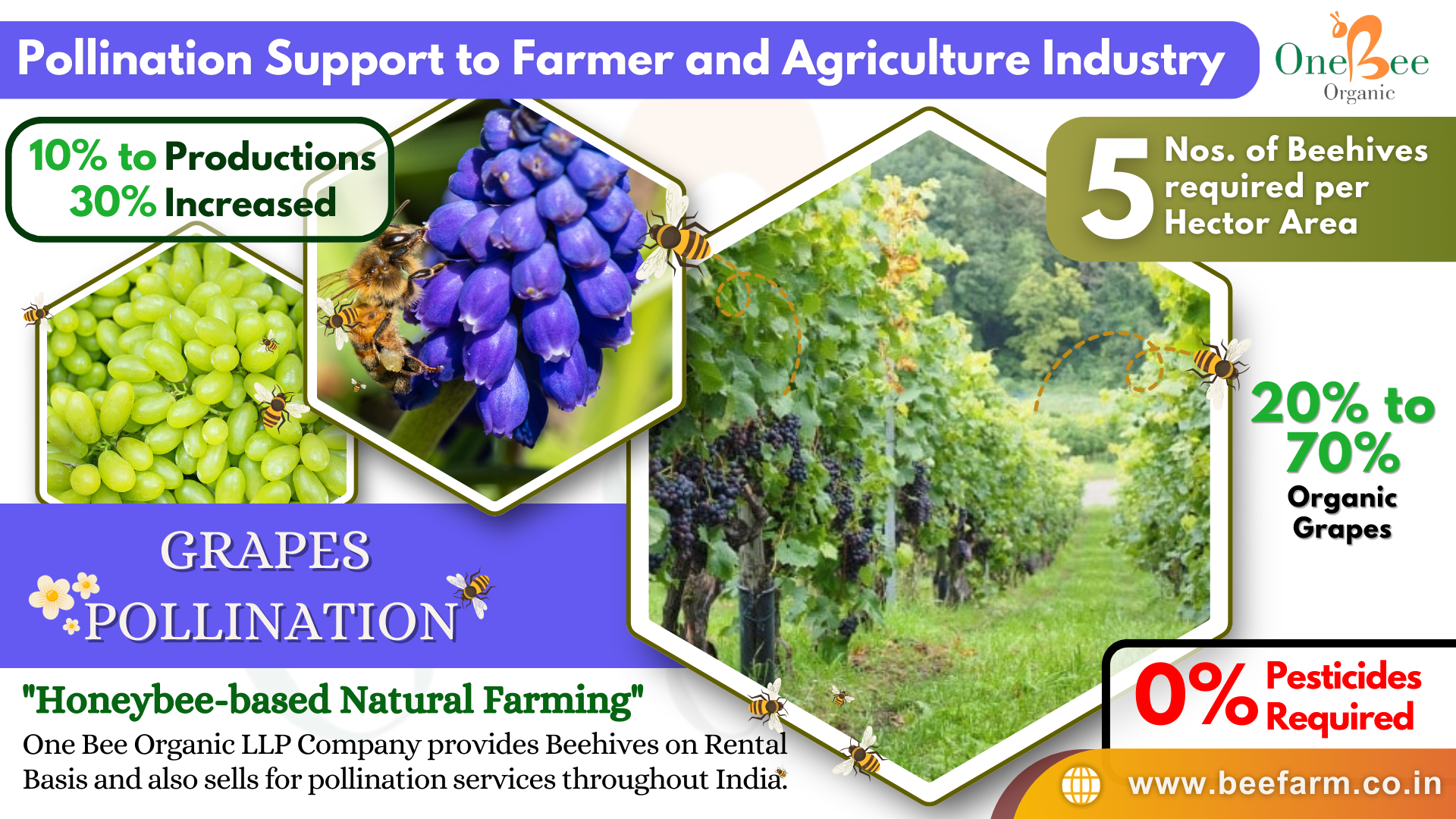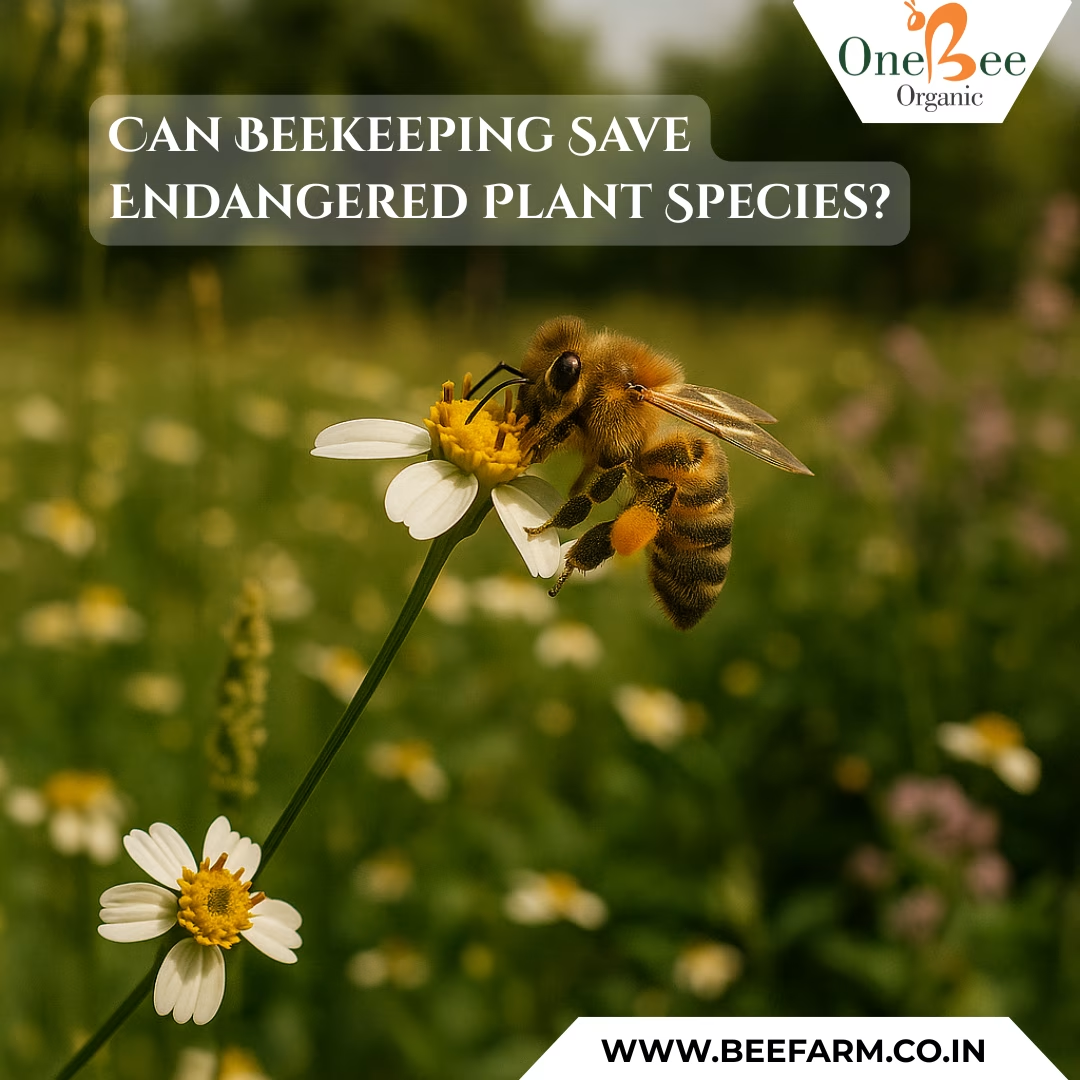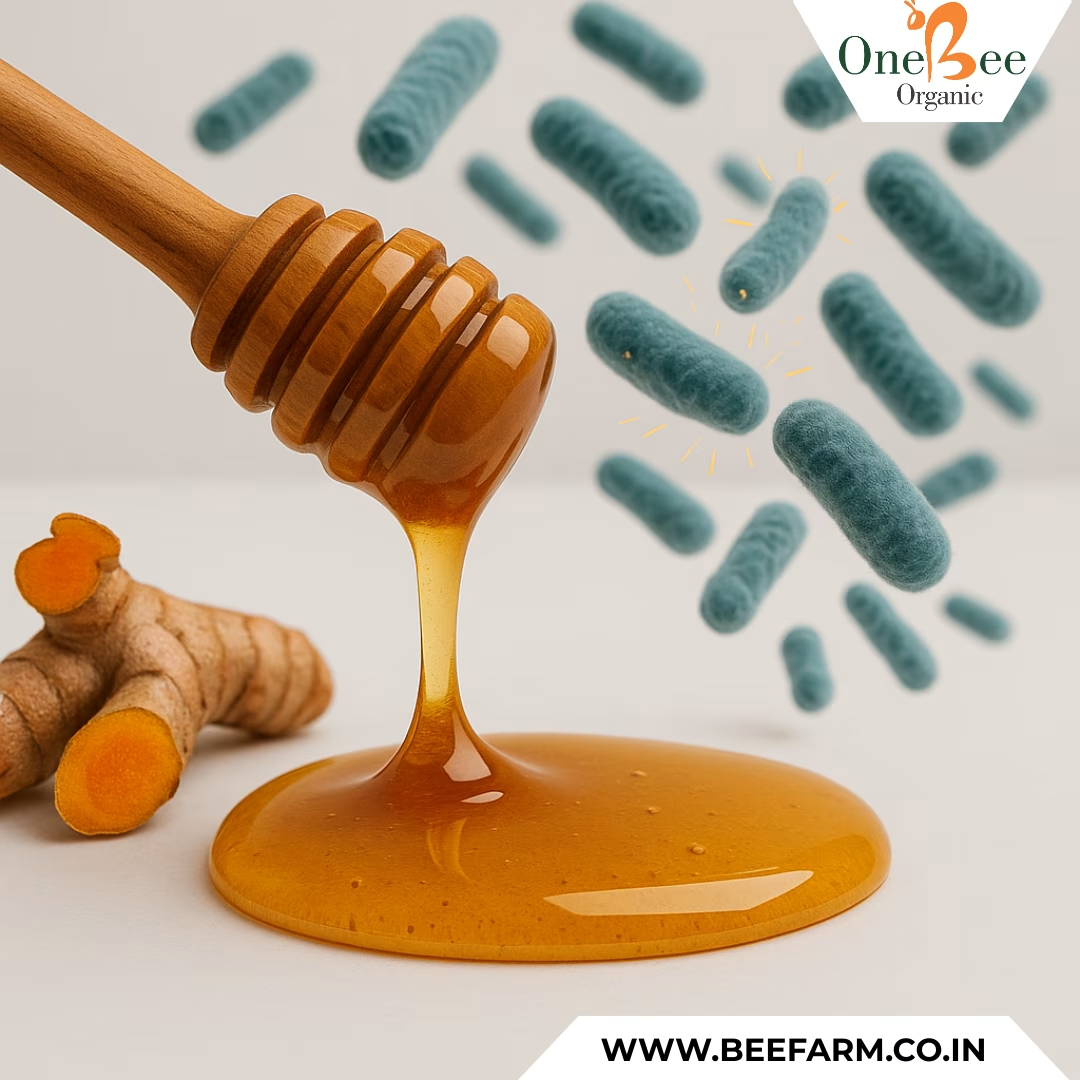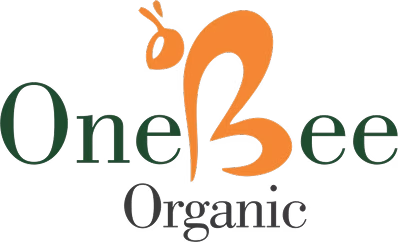Grapes Pollination Service
Grapes are one of the most valuable fruit crops, widely grown for fresh consumption, winemaking, and dried products. However, achieving high-quality grape production requires effective pollination. While grapes can self-pollinate, introducing honeybee-assisted pollination significantly enhances fruit set, size, and uniformity. Our Grapes Pollination Service provides a natural, pesticide-free, and sustainable solution, helping farmers boost yields and improve fruit quality.
The Role of Honeybees in Grape Pollination
Honeybees play a vital role in optimizing grape pollination by increasing the transfer of pollen between flowers. This results in better fruit development, improved cluster formation, and higher productivity. Studies show that vineyards using honeybee pollination experience a 10% to 30% increase in production and 20% to 70% improvement in organic grape quality. Moreover, beehives promote a healthier vineyard ecosystem, enhancing soil fertility and biodiversity.
Key Benefits of Honeybee Pollination in Grape Farming
- Boosts Yield & Production – Increases grape production by 10% to 30%, leading to higher revenue for farmers.
- Enhances Fruit Quality – Ensures better fruit size, shape, and uniformity, making grapes more appealing for markets and winemaking.
- Supports Organic Farming – Natural pollination eliminates the need for harmful pesticides, promoting chemical-free grape cultivation.
- Cost-Effective & Sustainable – Requires just 5 beehives per hectare, offering an affordable and efficient pollination method.
- Encourages Eco-Friendly Practices – Strengthens biodiversity, soil health, and overall vineyard sustainability.
With zero pesticides required, our Grapes Pollination Service offers an environmentally friendly and highly effective solution for improving grape farming. By integrating honeybee pollination, farmers can achieve superior quality produce, higher market value, and long-term agricultural success.








Leave A Comment